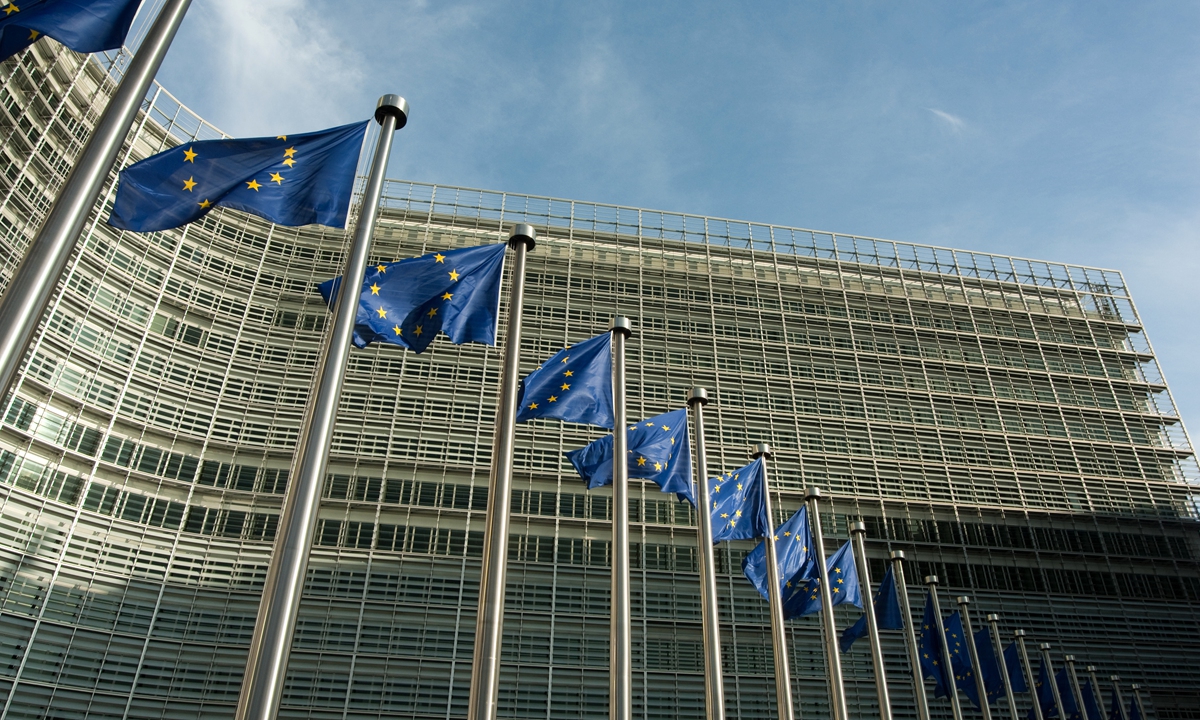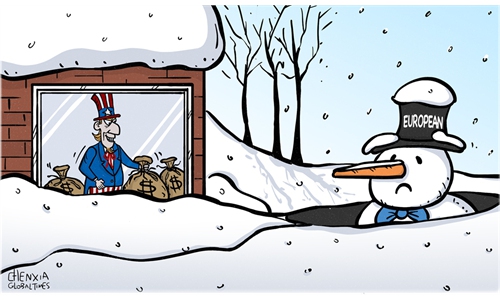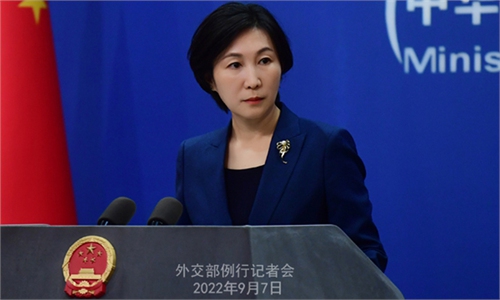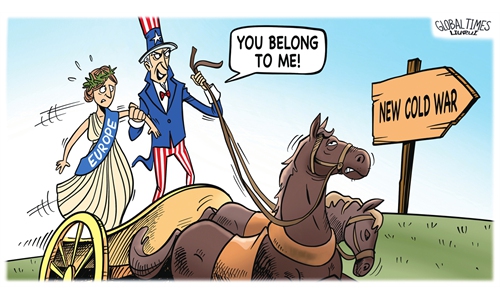
Photo:VCG
Recently, POLITICO Europe published an opinion piece entitled "Olaf Scholz's message to Europe: Germany First." The article claimed that "whether the issue concerns arms deliveries to Ukraine or how to cushion the impact of surging natural gas prices, Scholz's approach has been clear: Germany First." What form will "Germany First" take? And under America First, how will the transatlantic partnership evolve if allies are gradually drifting apart and prioritizing themselves.Since the Russia-Ukraine conflict, Europe's security and political order has entered a period of adjustment and reshaping. The impact of the conflict is moving beyond the battlefield and into areas such as economy and energy. With the prolongation and complications of the conflict, Europe's emotional response is gradually returning to rationality, shifting from a stress reaction to future-oriented strategic thinking. In this process, at least four questions will affect the effectiveness of Europe's strategic autonomy and the future of transatlantic relations.
First, do Russia and Europe have an either-or relationship or a symbiotic relationship? Second, is the transatlantic relationship a booster or a stumbling block for European strategic autonomy? Third, is it a normalcy or a policy deviation that Central and Eastern European countries try to tie up Europeanism through Atlanticism? Fourth, are European elites seeking happiness and prosperity for the European people or engaging in ideological and geopolitical confrontation?
Using the Russia-Ukraine conflict and even rivalry between great powers, the US has tightened its ties with European allies. Behind this is the US stubbornly adhering to bloc confrontation and Cold War mentality and enforcing its global hegemony through NATO and other bloc-based political platforms. In the Russia-Ukraine conflict, the US has only been fanning the flames, rather than acting as a major power to promote peace and dialogue. On the front of major power rivalry, the US has adopted a new National Security Strategy to intensify rivalry and zero-sum game, stating that "we will prioritize maintaining an enduring competitive edge over China while constraining a still profoundly dangerous Russia."
In this sense, the US is trying to turn the international community into a "hierarchical society" centered on itself and maintain an international system in which US hegemony reigns supreme. However, Europe's global blueprint is an international system based on regional cooperation, rule-based governance, and is characterized by external flattening and internal diversification. As a result, the contradiction between the US' control of NATO and the need for European security autonomy is increasingly intensifying.
In this process, Germany's role as the de facto leader of the EU has become increasingly prominent, and the country is strengthening its cooperation with pro-EU forces to advance European strategic autonomy. After the outbreak of the Russia-Ukraine conflict, Germany not only increased its military spending to more than 2 percent of its GDP, but also approved a special defense fund of 100 billion euros ($98.4 billion). Berlin is paying more attention to its role in the adjustment of Europe's order. On October 5, Scholz visited Spain and attended the Spanish-German Summit, saying during an interview with El País that Germany, as a major power at the center of Europe, will take its "special responsibility" very seriously.
Meanwhile, the Franco-German axis plays an increasingly important role, especially under growing calls for strategic autonomy. On September 1, when addressing the Conference of Ambassadors, French President Emmanuel Macron stated that France has always maintained independent diplomacy and that France and Europe must work together to ensure their geopolitical independence.
On October 6, the first European Political Community Summit took place in Prague, capital of the Czech Republic, which holds the current presidency of the EU Council. This is seen as the result of a long-term reflection of European elites on the continent's future. It aims to find new space for political cooperation among European countries based on shared core values and geopolitical principles.
But Germany also faces many restrictions. Germany's three-party governing coalition is still going through a period of adapting to each other. The three parties diverge in their responses to soaring energy prices, inflation, and foreign strategies.
Meanwhile, some of Germany's policies have been questioned by other EU member states. For example, Berlin has agreed on a relief package worth 200 billion euros to deal with high energy prices. But in the eyes of other EU countries, this is a move that undermines the European single market and competition rules.
In addition, Atlanticism has increased its influence over Germany, attempting to tear Germany and Europe apart and keep them as subordinate partners in the US' hegemonic system. More importantly, Russia is a close neighbor of the EU, and the future of the European security order cannot be separated from the presence of Russia. Nevertheless, some German elites are pondering over the status of Europe in the post-US era, hoping to bring Europe together and preserve its unity and the ambition of European integration.
The author is a research fellow with the Institute of European Studies, Chinese Academy of Social Sciences. opinion@globaltimes.com.cn



